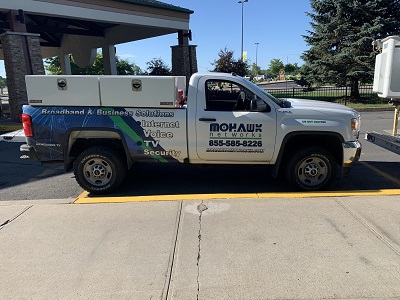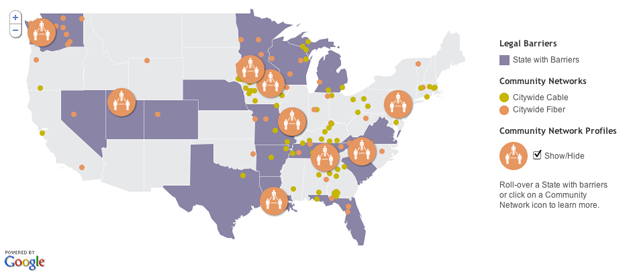
Fast, affordable Internet access for all.

As a young woman of the Nuxalk Nation, Mallory Hans is “clearing a path for future generations.”
A 2022 graduate of the British Columbia Institute of Technology, she’s one of about 50 people hailing from various Tribes and First Nations across North America in attendance for the latest Tribal Broadband Bootcamp, a three-day intensive learning experience focused on building and running Tribal Internet networks.
Held in different tribal regions several times a year since the initiative began in 2021, this bootcamp (the eighth in an ongoing series of hands-on seminars) is being hosted at the Akwesasne Mohawk Casino Resort on the Saint Regis Mohawk reservation along the New York/Canada border.
“So far so good,” Mallory said on Day Two of the bootcamp just as the attendees broke into small groups to go through a variety of demonstration stations set up by bootcamp instructors and Tribal employees who run Mohawk Networks, which provides fiber-to-the-home (FTTH) Internet, video, and voice services across the reservation in northern New York.

In continuing the driving impulse to demystify technologies and build capacity among cohorts in Tribal nations, Day Two was centered around fiber stations that included demonstrations of how network operation centers are run; one on fiber splicing; another showcasing equipment used to install fiber inside of households with representatives from Calix, and another station on the electronic equipment that measures the performance of fiber lines.
“I’m enjoying it, feeling more confident and finding out I’m capable,” said the 22 year-old, newly minted fiber technician.
The Decentralized Web Summit: Locking the Web Open will happen on June 8th and 9th at Internet Archive in San Francisco. The event will be live streamed if you can’t attend in person.
The event is a discussion of the future of the web. From the Summit website:
The World Wide Web is fragile. Links break and website content can disappear forever. The Web is not universally accessible. It is too easy for outside entities to censor connections, controlling what people can and cannot view on the Web. The Web is also not very private, exposing users to mass surveillance by corporations and governments. A Decentralized Web can address all of these problems by building in privacy, security and preservation by default, ensuring that websites are easily accessible to all as long as at least one person somewhere in the world is hosting a copy.
Keynote speakers will be Vint Cerf, considered one of the “Fathers of the Internet” and Chief Internet Evangelist for Google; Cory Doctorow, Special Advisor at the Electronic Frontier Foundation; and Brewster Kahle, Founder and Digital Librarian of the Internet Archive.
The list of presenters includes a number of innovators, tech leaders, and journalists. Panel discussions cover a range of relevant topics, including innovation, privacy, and security. There will also be workshops and Q & A to address your specific concerns.
You can check out the schedule, register to attend online, and learn more about the decentralized web by reviewing some of the resources the team has made available. The event is sponsored by the Internet Archive, the Electronic Frontier Foundation, the Ford Foundation, Google, and Mozilla.
 Ford Foundation explores the context around the map here:
Ford Foundation explores the context around the map here:
The stakes on this issue are high, and the questions are complex—making the involvement of philanthropy especially important. Questions are emerging, for example, about the lack of market competition, and what appears to be the resulting failure to provide good service to rural and working communities. Some localities are responding by establishing municipal broadband networks that meet the infrastructure needs of their citizens and ensure that local businesses and families are not left behind. Our grantee partners are informing debates on issues like these, where the real future of Internet rights is being determined—and where the public interest can easily get lost.We look forward to seeing this map add more communities as they take responsibility for their digital future.